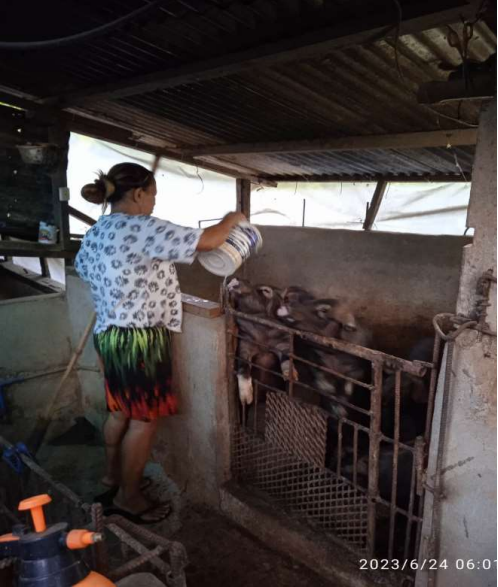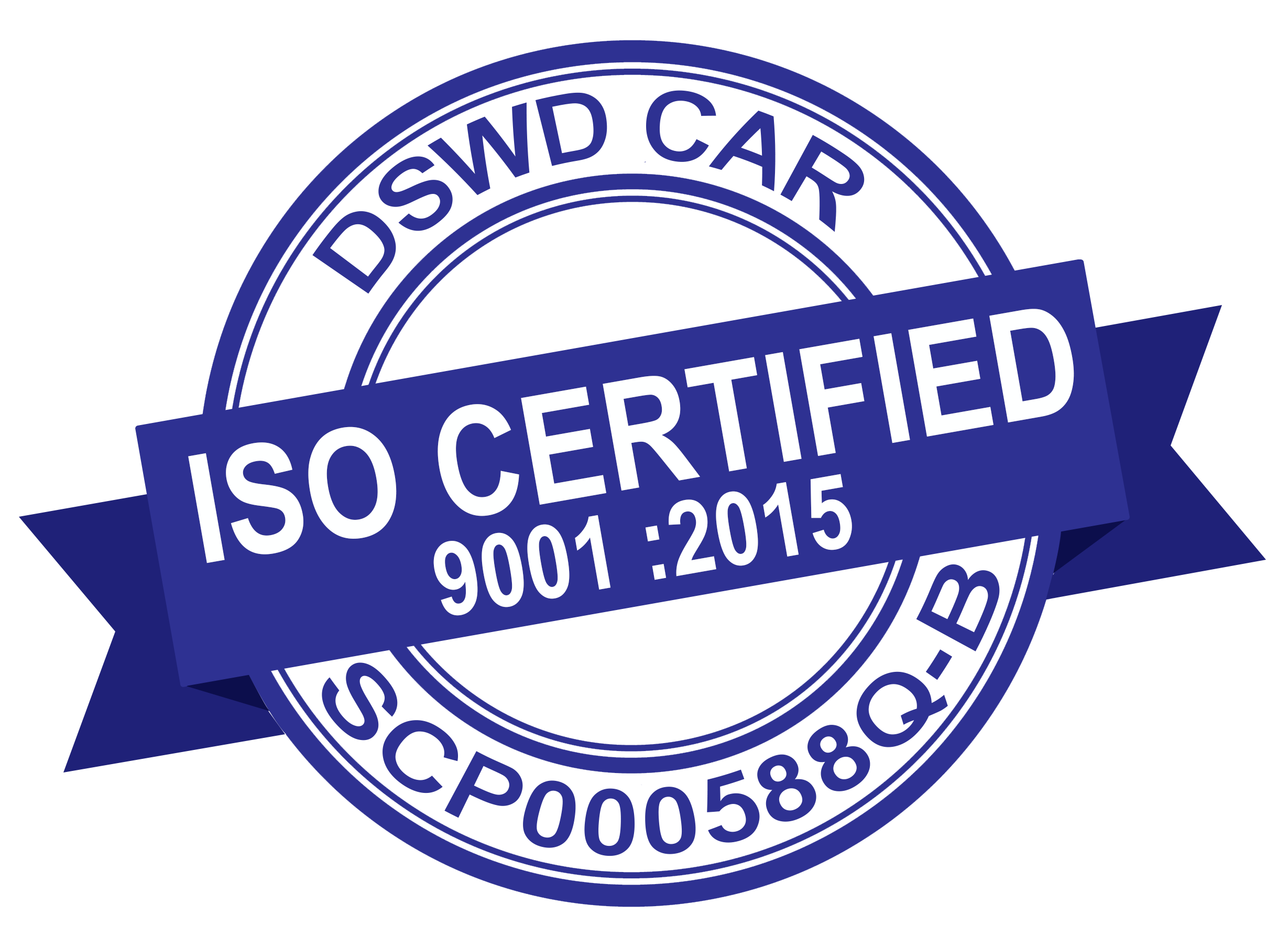
In Sitio Jahpa, life revolves around mining, vegetable farming, and hog raising, where every livelihood thread is woven into the intricate tapestry of survival. However, when Typhoon Ompong ravaged the municipality in September 2018, it was left with a trail of devastation — livelihoods shattered, dreams uprooted, and hopes dimmed. For Vanesa Carlos, whose mainstay was hog raising, the storm struck a particularly harsh blow.
With her spouse toiling as a miner for Benguet Corporation and four children striving for education, the weight of responsibility rested heavily on Vanesa’s shoulders. Yet, amid the chaos and despair, a glimmer of hope emerged. On 16 May 2019, a lifeline was extended in the form of a P20,000 financial assistance from the DSWD Sustainable Livelihood Program (SLP), targeted to help Internally Displaced Persons (IDPs) like Vanesa.
With determination as her compass, Vanesa charted a course towards renewal. She invested the grant in purchasing four piglets and essential feeds, resurrecting her hog-raising venture from the ashes of adversity. As the project evolved over 48 months, embarking on its fifth cycle of hog production, Vanesa’s steadfast resolve remained unwavering.
Through meticulous care and planning, Vanesa nurtured her investment, overcoming challenges with ingenuity and resilience. Despite the absence of a boar, she embraced modern techniques like insemination in which she is paid P1,500 per shot from the expert technician of a private company, ensuring the continuity of her hog-raising legacy. She is lucky if the one-time shot is successful but if failed, she will have to pay for a second. The sow produced nine piglets for the first production, another nine piglets for the second production, and fourteen piglets for the third production. Each litter brought promise and prosperity, with piglets flourishing under her attentive gaze. Vanesa does not sell the piglets immediately, instead she tends to them for four to five months and sells them from P10,000 to P15,000, depending on their weight. According to her, she gains more if she fattens the piglets first before selling them.
Vanesa is also careful about keeping her pigs healthy, implementing stringent measures and safeguarding her pigpen. Her vigilance bore fruit, shielding her livelihood from the African Swine Flu (ASF) disease. She does not allow buyers to enter the pigpen, no boar from outside to mate with the sow, strictly observed ASF protocols during the infestation and covered her pigpen with cellophane, and most importantly, she maintains the cleanliness of the sty.
Before the implementation of the grant, she was earning a net income of P20,000 per production sale, which increased to P45,000 which enabled her to cover all the basic needs of her family, and roll the income for feed expenses. She attended training on hog raising and management, and also acquired the Registry System for Basic Sectors in Agriculture (RSBSA) registration.
“Dakkel ti naitulong ti naawat mi nga grant ta isu ti nainayon nga puunan mi para iti panag taraken ti baboy, ket gapu iti lako ti baboy, ada nausar ti annak ko iti gastos ti modules da ken naigatang ti kasapulan mi idi panawen ti covid 19.” (The grant I received was a big help to us because it was added as capital to our hog raising. The income sufficed for the needs of my children with the expenses of their modules, and sufficed for our basic needs during covid 19 pandemic.)
Vanesa Carlos stated that the livelihood grant gives her employment aside from being a homemaker. As the world grappled with the disruptions brought by the COVID-19 pandemic, she stood as a beacon of resilience, her livelihood a stability amidst uncertainty. She earned a net income of P138,000 from her total sales throughout the 18 months incubation period as in June 2019. At present she is tending to 8 piglets and a sow. The proceeds from her hog-raising enterprise not only sustained her family’s needs but also facilitated her children’s education, illuminating a path towards a brighter future.
Through Vanesa, we find a testament to the transformative power of livelihood assistance. With unwavering determination and resolve, she embodies the essence of resilience, transforming adversity into opportunity and illuminating a path towards a brighter tomorrow for herself, her family, and her community. #MS. VENUS GRACE F. ANONGOS, PDO II and JOANNA MARIE M. CAPONPON-APOSTOL, DSWD FIELD OFFICE CAR, SOCIAL MARKETING UNIT.—




